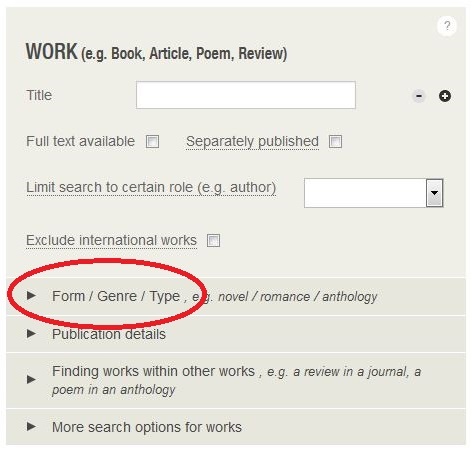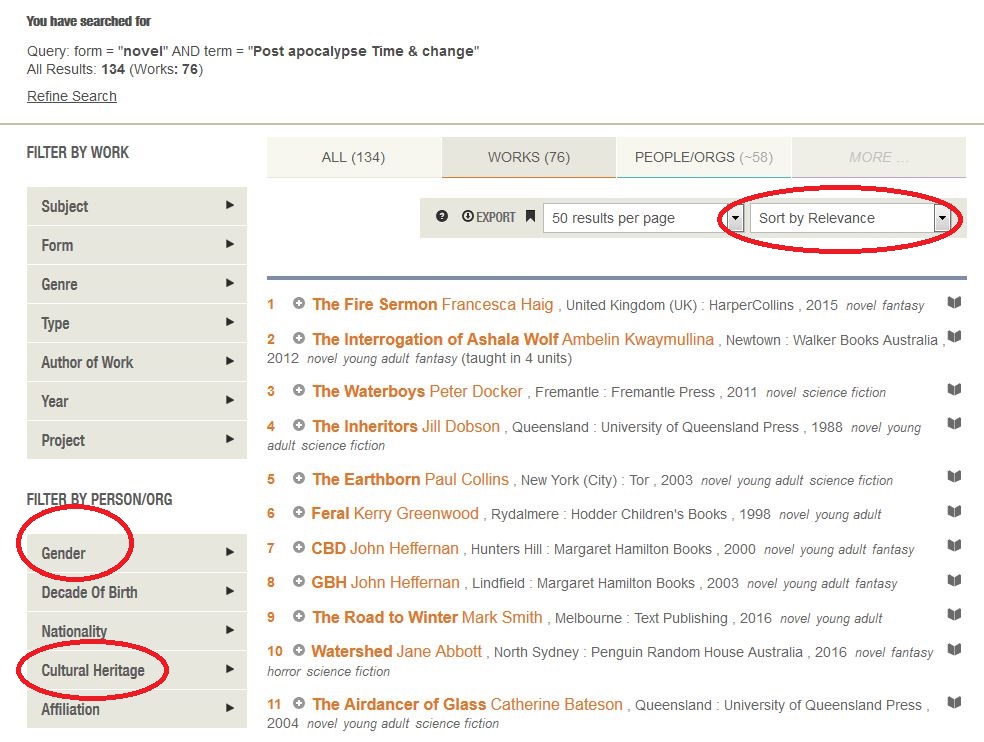AustLit
-
Working individually or as a group, search the AustLit database for information about this topic, with a plan for making a brief presentation to the class at the end of the session. You will have around 30 minutes to do your research and come up with a quick presentation of no more than five minutes, on any aspect of your research that you like.
Some information and questions have been included below to help guide your research. Use the search help information on the AustLit website to refine the ways you can discover the necessary information.
-
A dystopia is a society that is undesirable or frightening—the opposite of a utopia, which is an ideal or perfect society. An apocalypse is a scenario in which the world ends, or at least society as we know it is no longer able to continue. A post-apocalyptic world is usually a dystopia. When the world changes or when we start to think about some coming changes (the discussion about climate change at the moment is a good example), authors write post-apocalyptic and dystopian fiction as way of exploring these ideas.
Your task today is to search and explore the AustLit database for information about Australian post-apocalyptic or dystopian fiction. The questions below will help you discover how Australian writers have engaged with post-apocalyptic and dystopian themes.
-
- Can you find novels for children and young adults on the database? How many are there in total?
- How can you find novels about apocalypses and dystopias?
- Do these stories have anything in common? And how can you tell?
- Which is the earliest example of this fiction in the database? Has this author written any other novels?
- Which authors write the most post-apocalyptic fiction?
- Do more women write this kind of fiction, or more men?
- Can you find one written by an Aboriginal author? What is it about?
- If you like this fiction, what other things might you search the database for?
-
In order to find a range of results, students will need to use the Advanced Search function. Typing 'apocalypse' or 'dystopia' into a keyword search will return some results, but not a comprehensive range.
Encourage the students to explore the Advanced Search page, a portion of which is shown on the right.
They can use the 'Form / Genre / Type' field to locate fiction for children and young adults, or to limit their results to novels, or to limit the search to science fiction and fantasy works. They can use the 'Subject terms' to search for terms such as 'dystopia' or 'apocalypses'.
Students can also learn to stack searches to return more specific results: for example, they can search for 'science fiction' under genre and 'post-apocalypse' under subject terms, to return the most specific results.
-
Students will also benefit from 'reading' the search results page, which will show them how to re-order and interpret results. In the image below, for example, we have circled sections that (from top to bottom)
- allow you to re-order the results (for example, from earliest publication to latest),
- see the number of authors of various genders (for example, how many women have published works, compared to men),
- and see the cultural heritage of authors (for example, are any Aboriginal authors represented in this list?).
You might be interested in...







